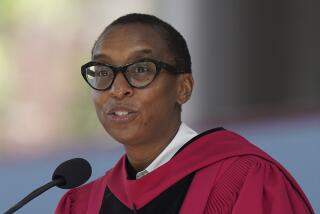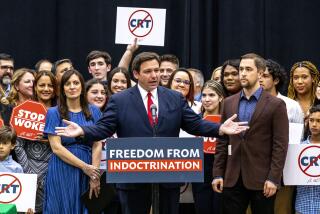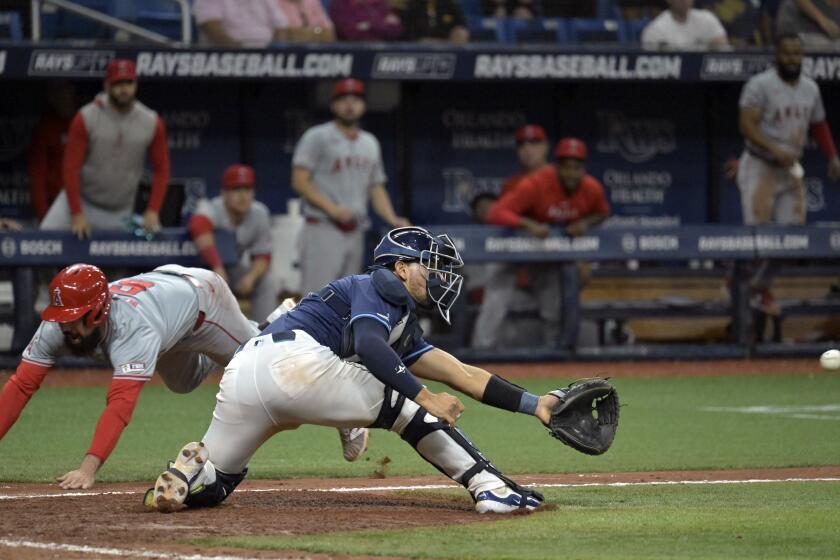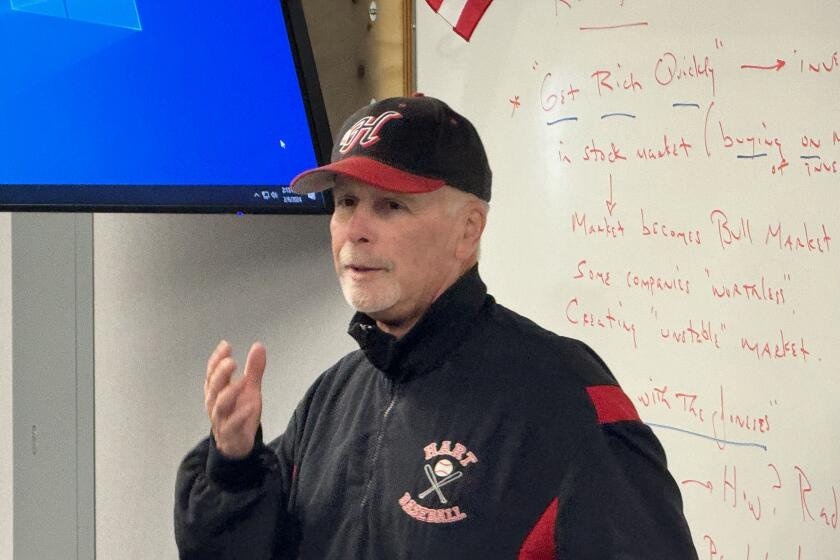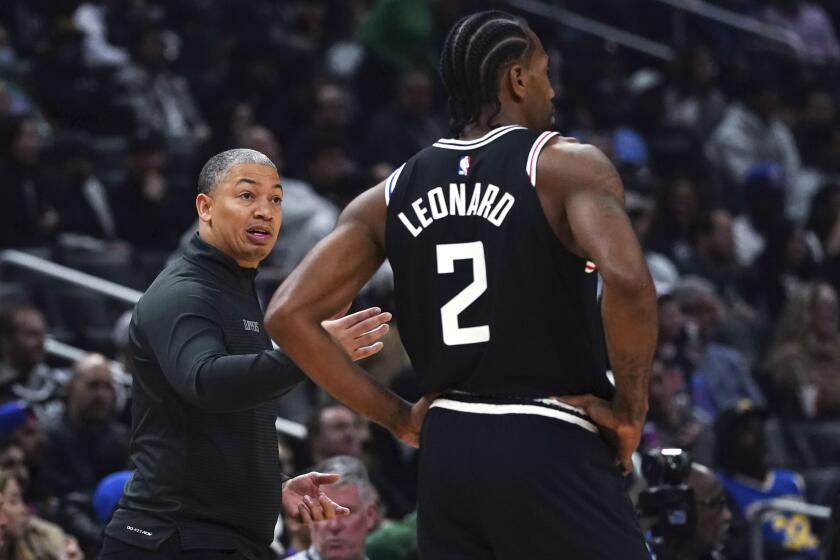Column: A scandal at North Carolina lands on NCAA’s doorstep
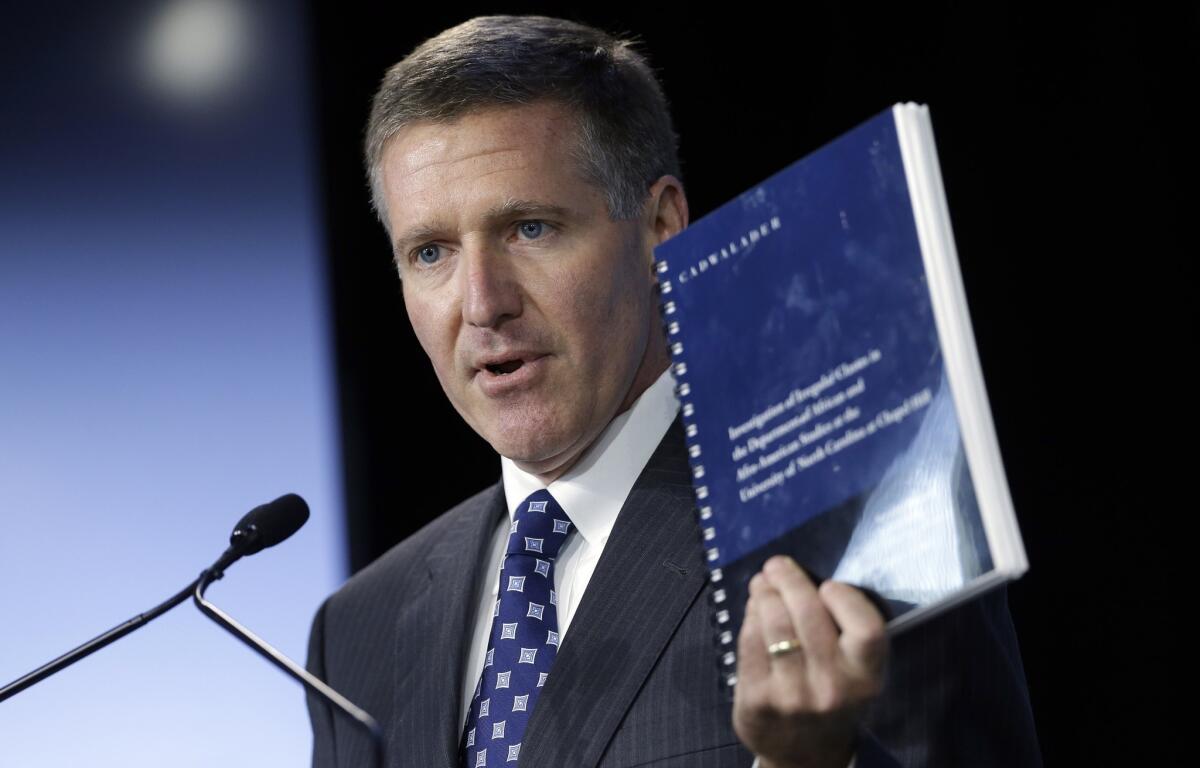
Somewhere, up there, Jan Gangelhoff is smiling. She didn’t need to be validated, but she has been.
Name not familiar? We will help you.
In March 1999, a bright young sportswriter named George Dohrmann wrote a story in the St. Paul Pioneer Press that said University of Minnesota basketball players were turning in papers they didn’t write and getting class grades for them. The grades were keeping them eligible to play in a successful program run by coach Clem Haskins.
The story won a Pulitzer Prize. The source of the story was Gangelhoff, who had been employed as a student advisor by the school and said she had written more than 400 of the papers. She said that, often, the student-athlete came to her home and told her a little about the class and the paper he needed. Then she handed him her TV remote and she sat down to type.
Minnesota took a big hit from the NCAA — not a USC/Reggie Bush hit, heaven forbid — but big. The university bought out Haskins’ contract and several others were fired and Gangelhoff took a beating from some Minnesota sports fans, who, like many college sports fans, see winning as a higher priority than actually getting an education.
At the time, Gangelhoff defended her whistle-blower actions by saying, “They [the school] bring in these high-risk kids and they know that everything they did in high school was done for them. It had to stop somewhere.”
The story was so big that Barbara Walters put Gangelhoff on her network TV show and asked, appearing to be sincerely baffled, why Gangelhoff would break the bonds of loyalty to the people for whom she worked.
Gangelhoff responded, “This young reporter kept asking me questions and I decided to tell the truth.”
It might have been the best moment for journalism since Watergate.
Now we have another Minnesota/Clem Haskins scandal, but this one is on steroids. It is at none other than the University of North Carolina, henceforth to be known as the fake Harvard of the South.
A 131-page report, ordered by school Chancellor Carol Folt and done by Kenneth Wainstein, a former federal prosecutor, found that, from 1993 to 2011, the school had a system in place that allowed students to get grades for papers they didn’t write and from classes they didn’t attend. The report said that in the 18 years of the subterfuge, run out of the African American studies department, an estimated 3,100 students were participants and 47.6% of those were athletes.
“Hark the sound of Tar Heel voices…
I’m a Tar Heel born, I’m a Tar Heel bred,
And when I die, I’m a Tar Heel dead.”
Among those implicated were the former head of the department, Julius Nyang’oro; an academic assistant named Deborah Crowder; and the former women’s basketball team academic advisor, Jan Boxill. Boxill moved on to other things, such as the job of director of UNC’s Parr Center for Ethics.
This story, as the song says, has only just begun. The local district attorney has been quoted as saying that he sees no likelihood of criminal charges. That will leave the punishment stage, for any athletic involvement, to the NCAA.
We pause here to giggle.
A CNN reporter, Sara Ganim, who chased this story for several years while being stonewalled, characterized this as possibly “the biggest academic fraud scandal in all of collegiate sports history.”
It certainly outsizes Minnesota. It also challenges in numbers and time — but does not come close in social horror and disgust — the Jerry Sandusky scandal at Penn State.
It might even be seen in the eyes of the NCAA as (oh, my gosh) almost as big as Reggie Bush. The main issue is always lack of institutional control? In this one, how about ZERO institutional control?
You can almost feel the neck veins tightening at NCAA headquarters. This one will make them so angry they will shut down the school’s badminton team, ban sales of Tar Heels caps on campus for six months and appoint a Duke graduate to oversee the reform program.
Go get ‘em, NCAA.
Not that there aren’t penalty opportunities. This stretches back to 1993. In that time, annual basketball power North Carolina won NCAA basketball titles in ‘93, ’05 and ’09. That crosses into the active time of the legendary basketball czar Dean Smith, who is ill and not in a position to address the matter. Current coach Roy Williams, somewhat of a legend himself, is on the record as saying he had no idea about this.
Like Gangelhoff, there was a whistle-blower here too. Her name is Mary Willingham and her job was university learning specialist. At one point, she was quoted as saying that at North Carolina, “There was a level of arrogance that was part of the culture.”
For five years, Willingham has been trying to get people to listen to her. Good for her, and for Chancellor Folt, who found a way to get at the real truth.
We wish Willingham luck and will keep her in our prayers, with reason.
Gangelhoff had a fairly unhappy life in the aftermath of her whistle-blowing. She moved to Wisconsin, lived in a cheap casino motel and struggled to find work, eventually landing a job teaching on an Indian reservation. She would forever be, for so many Minnesota fans, a pariah.
The Times’ Sam Farmer visited her in 2001 and wrote: “Jan Gangelhoff found her conscience. In the process, she lost everything else.”
Gangelhoff learned that putting the Minnesota situation behind her was impossible, that she would always be Jan Gangelhoff, whistle-blower.
She died in March, 2005, at age 56.
More to Read
Get our high school sports newsletter
Prep Rally is devoted to the SoCal high school sports experience, bringing you scores, stories and a behind-the-scenes look at what makes prep sports so popular.
You may occasionally receive promotional content from the Los Angeles Times.
